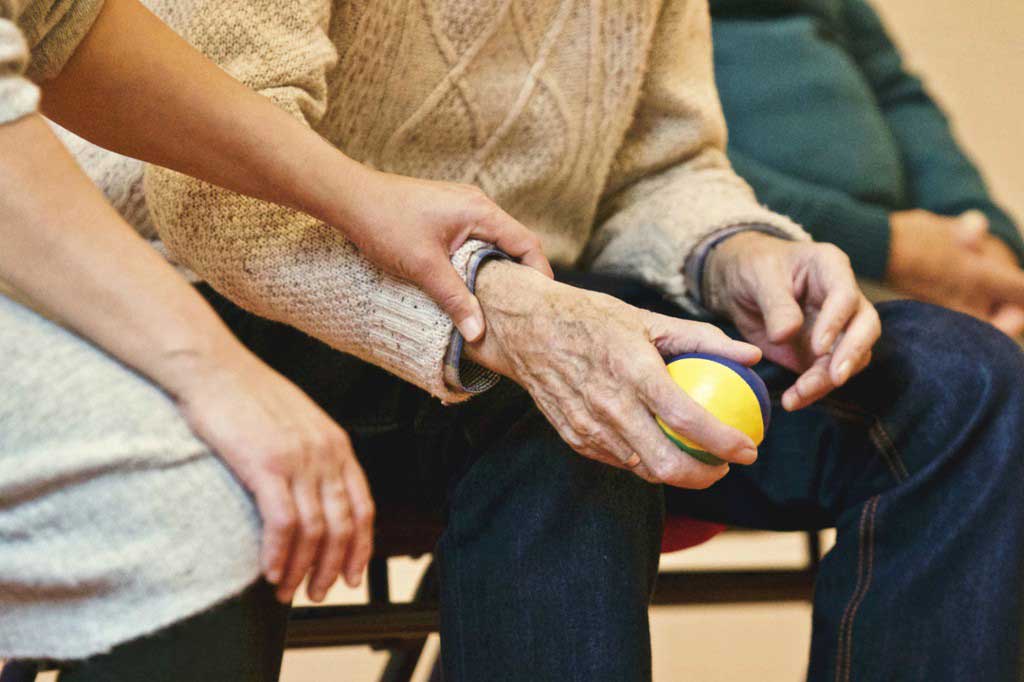Statins 'may not help over-75s without diabetes'
Older people

'Statins not recommended for healthy pensioners over 75, new study finds' The Daily Telegraph reports
"Millions given statins 'just in case' are wasting their time and don't receive any benefit," reports the Mail Online.
Statins are a class of medicine that helps lower the body's cholesterol level. They're recommended for people thought to be at increased risk of cardiovascular disease (CVD), such as heart attack or stroke.
Older adults are among those at higher risk of CVD, which is why they may be prescribed statins to lower their risk, even if they're otherwise healthy.
Researchers used information from a Spanish database to look at what happened to 46,864 people aged 75 and over, 7,502 of whom were prescribed statins for the first time.
They found that those with diabetes saw a reduction in their risk of heart attack, stroke or death, but those without diabetes seemed to gain no benefit.
The way the study was carried out means it's hard to draw definitive conclusions.
It's possible that people who weren't given statins were healthier and had a lower cardiovascular risk than those who received the drugs, masking the benefits of the drug.
In other words, the people who took statins may have had an increased risk of heart attacks or strokes had they not taken them.
Current UK recommendations say that people with a 10% or higher risk of developing cardiovascular disease in the next 10 years should be offered statins. This would include most people over 75.
Treatment decisions have to be made on an individual patient basis, balancing risks and benefits. It's not advised to stop taking prescribed medicines without talking to your doctor first.
Where did the story come from?
The study was carried out by researchers from the Institut Universitari d'Investigacio en Atencio Primaria Jordi Gol, the Catalan Institut of Health, the Municipal Institute for Medical Research and the University of Salamanca, all in Spain.
It was funded by grants from the Spanish and Catalan governments, as well as from the EU.
The study was published in the peer-reviewed British Medical Journal (BMJ) on an open-access basis, so it can be read online for free.
It was widely covered by the UK media. Despite some sweeping headlines, most of the stories included balancing comments from UK clinicians about the drawbacks of the research methodology and the need to treat the results with caution.
For example, The Independent included a reaction from Tim Chico, professor of cardiovascular medicine at the University of Sheffield, who said: "Due to its design, this study cannot tell us whether or not statins reduce death or cardiovascular disease in older people."
What kind of research was this?
This was a retrospective cohort study.
This type of observational study is useful for comparing what happens to groups of people in different situations (in this case, people over 75 who have or haven't been prescribed statins), but it can't show cause and effect.
So in this case, it can't show whether living longer or having strokes or heart attacks are a direct effect of taking or not taking statins.
What did the research involve?
Researchers used a database of patients registered with GPs in the Catalonia region of Spain.
They selected records from patients over 75 without cardiovascular disease who weren't taking statins and were also free of major diseases such as cancer and dementia.
They looked at what happened to those prescribed statins for the first time, with an average follow-up time of 7.7 years.
They also looked at what happened to those not prescribed statins during a similar time period.
The researchers looked separately at age groups 75 to 84 and 85 plus, and at people with and without type 2 diabetes.
They calculated people's chances of having died or developed cardiovascular disease during the follow-up period, and compared the chances for people who did or didn't take statins.
They adjusted the figures to take account of a number of potential confounding factors, including:
- age
- sex
- blood pressure
- body mass index
- other cardiovascular risk factors, such as diabetes, smoking, high cholesterol and heavy alcohol use
- other illnesses, such as arthritis, asthma and atrial fibrillation
- other drugs, such as water tablets (diuretics), anti-inflammatories and aspirin
- results of blood tests for glucose, cholesterol and other blood fats, and kidney function
- "deprivation" (which we assume means low socioeconomic status)
- number of visits to the doctor
What were the basic results?
People with diabetes
Researchers found people aged 75 to 84 with diabetes had a reduced risk of cardiovascular disease or death if they took statins compared with non-users:
- 24% reduced risk of cardiovascular disease (hazard ratio [HR] 0.76, 95% confidence interval [CI] 0.65 to 0.89) with statins
- 16% reduced risk of death (HR 0.84, 95% CI 0.75 to 0.94) with statins
People without diabetes
People aged 75 to 84 without diabetes taking statins had the same risk of cardiovascular disease or death as those not taking statins (HR 0.94, 95% CI 0.86 to 1.04 for cardiovascular disease; HR 0.98, 95% CI 0.91 to 1.05 for death).
People aged 85 or over
For all people aged 85 or over there was no apparent benefit of taking statins, whether they had diabetes or not.
The research showed no increase in risk of muscle pain, liver problems or diagnosis with type 2 diabetes among people taking statins.
How did the researchers interpret the results?
The researchers said: "Our results support the need to individualise the decision-making process about statin treatment in old and very old populations."
They say that their results, being based on observational data, "may not provide enough grounds for direct clinical recommendations", but they "may help to make decisions in clinical practice" while awaiting the results of randomised controlled trials of statins for older people.
Conclusion
Statins have prolonged the lives of many people after a first heart attack or stroke, and prevented many repeat heart attacks and strokes for these people.
The benefits of taking statins if you haven't had a heart attack or stroke and don't have cardiovascular risk factors are more controversial.
There's good evidence that statins can reduce the risk of developing cardiovascular disease and having a first heart attack or stroke, although the evidence is less strong for people aged 75 and older.
UK guidance currently recommends that people are assessed for cardiovascular risk factors up to the age of 84.
People who are assessed to have a 10% or greater risk of cardiovascular disease in the next 10 years would then usually be offered a statin.
This seems to differ from the situation in Europe and the US, where the recommendation is to offer statins to people aged up to 65 and 75, respectively.
But this study has limitations and doesn't necessarily mean that UK recommendations to prescribe statins for older adults are incorrect.
The main limitation is that the study relies on observational evidence, rather than being a randomised controlled trial.
This means we can't be sure why people were given statins and so can't exclude the possibility that factors other than statins affected the results.
If people given statins were less healthy and had been assessed to have a higher cardiovascular risk than people not given the drugs, this could have masked the beneficial effects of treatment.
The research found statins reduced risk for people aged 75 to 84 who had diabetes. This would be in line with current UK recommendations to prescribe statins to people with cardiovascular risk.
People given statins who didn't have diabetes may on balance have been assessed to have other factors that put them at higher risk.
Also, although the overall size of the study is large, some of the sub-groups are quite small.
For example, there were only 1,239 people aged over 85 with diabetes in the study, and only 201 of them started taking statins during the study. That's quite a small number to assess the effect of statins in this group.
We need more good-quality evidence for the effect of statins in old and very old people, and at least one trial is under way. But the results of this trial aren't expected to be available until 2022.
In practice, doctors will consider the benefits and potential drawbacks of taking statins on an individual basis. The risks from statins are quite small, and this study found no reason to stop taking them.
But if you're unsure whether you want to take them or continue taking them, the best answer is to talk to your GP about your individual risk of cardiovascular disease.
You can then make a decision together, based on your circumstances and preferences.






 Subscribe
Subscribe Ask the doctor
Ask the doctor Rate this article
Rate this article Find products
Find products







